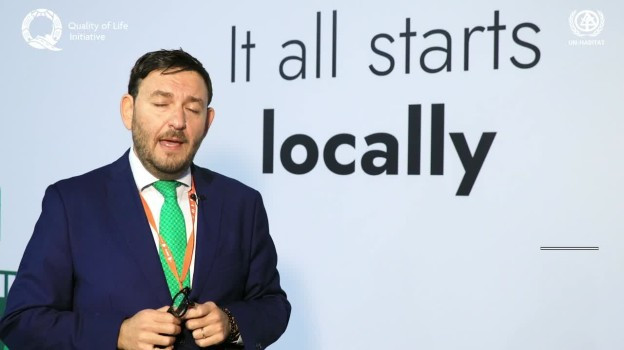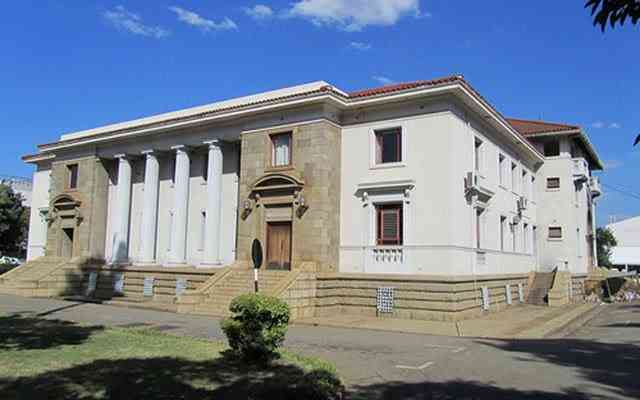
GOVERNMENT needs to come up with a robust governance framework to create a stable and predictable environment capable of attracting investors, according to Alpha Media Holdings (AMH) chief executive officer Kenias Mafukidze.
AMH is Zimbabwe’s biggest privately-owned media organisation, which publishes NewsDay, The Standard and Zimbabwe Independent. It also owns Heart & Soul Broadcasting Services (HStv).
Mafukidze told delegates, who attended last week’s Chartered Governance and Accountancy Institute in Zimbabwe annual conference, that clear rules of engagement were also essential for attracting investment into Zimbabwe, which has a target of US$4 billion worth of investment proposals this year.
“In 2023, the minister (of Finance) projects a gross domestic product (GDP) growth of 5,3%,” Mafukidze said. “By comparison, the most impressive sustained economic growth in history is China, which delivered a sustained annual growth of 9% during the 20 years to 2021.
“Attainment of a middle income status means that by 2030, that is within the next seven years, Zimbabwe’s gross national income (GNI) must go up more than three times to around US$4 500 from the current US$1 449. According to 2022 World Bank statistics, a GNI of US$4 500 will usher Zimbabwe into the same league as Namibia (US$4 880), South Africa (US$6 780), Botswana (US$7 360), Malaysia (US$11 780) and China (US$12 860).”
Mafukidze said when investors perceive that the rule of law is respected, human rights are protected, and corruption is kept in check in a given country, they are likely to troop in.
“Clear rules of engagement are essential for attracting investment. To bring in transformative capital, investors need to trust that their investments will be protected and that disputes can be resolved through legal governance structures that are not only impartial but are also efficient,” he said. “For Zimbabwe to be able to sustain a growth of 7% over the next seven years there is need to bring in capital, which in turn is timid and demands solid governance structures.”
He said transparency in government processes, including procurement, would help reduce corruption and increase investor confidence.
- Industry retooling gains momentum
- Violence and harassment of journalists must stop: ZUJ
- In Conversation With Trevor : Diplomatic posting was a mistake: Chihombori-Quao
- ZimInd’s Banks and Banking Survey set for today
Keep Reading
“It is interesting and commendable to see the amount of roads Zimbabwe managed to build over the last five years by simply engaging direct players,” Mafukidze said.
“Zimbabwe has a huge infrastructure deficit, which needs to be closed over the next seven years if we are to attain a middle income status. One of the key areas where good governance is critical is in the management of public finances.”
Speaking during the same panel discussion, permanent secretary in the corporate governance unit in the Office of the President and Cabinet, Allen Choruma, said if government did not put in place proper checks and balances, public entities may affect sustainable economic development and growth.
“According to statistics from Treasury as at December 2022, the total estimated foreign debt accrued by state-owned enterprises and parastatals stood at about US$1,3 billion in 2021, rising to US$1,6 billion in 2022, which is about 10% of the total national debt estimate of US$18 billion,” Choruma said. “Inter-public entities debt burden, where public entities fail to pay for services rendered by other entities, or where entities fail to honour their tax obligations, has also risen, and is estimated at US$1,2 billion.
“Treasury, operating within a constricted and constrained fiscal space, has to find ways to manage these fiscal risks created by public entities to ensure that the economy is not crippled, the national budget is prudently managed and that critical public infrastructure remains operational and essential services are provided to the people.”
Afreximbank executive vice-president, finance, administration and banking service Denys Denya said Zimbabwe’s majestic landscapes, vibrant cultural heritage, and abundant wildlife positioned it as a premier tourism destination.
Denya, however, said realising the full potential of this sector demands deliberate investments in infrastructure and strategic marketing.
“The tourism industry holds the potential of generating billions in foreign currency revenue, making a substantial contribution to our country’s gross domestic product,” he said. “To harness this potential, we must envision the development of state-of-the-art conference and hotel facilities that will support the entire tourism ecosystem.”
Former auditor-general Mildred Chiri said there was no doubt that for any government to deliver services to its people, it should have strong institutions.
“In most countries public services are delivered by government through various public sector entities. Governments should be citizen-centric, that is, they should focus on delivering good quality service to their citizens,” Chiri said. “Audit helps institutions to stay focused on their mandates, goals and objectives. Good service delivery will lead to the realisation of the 2030 Sustainable Development Goals.”










